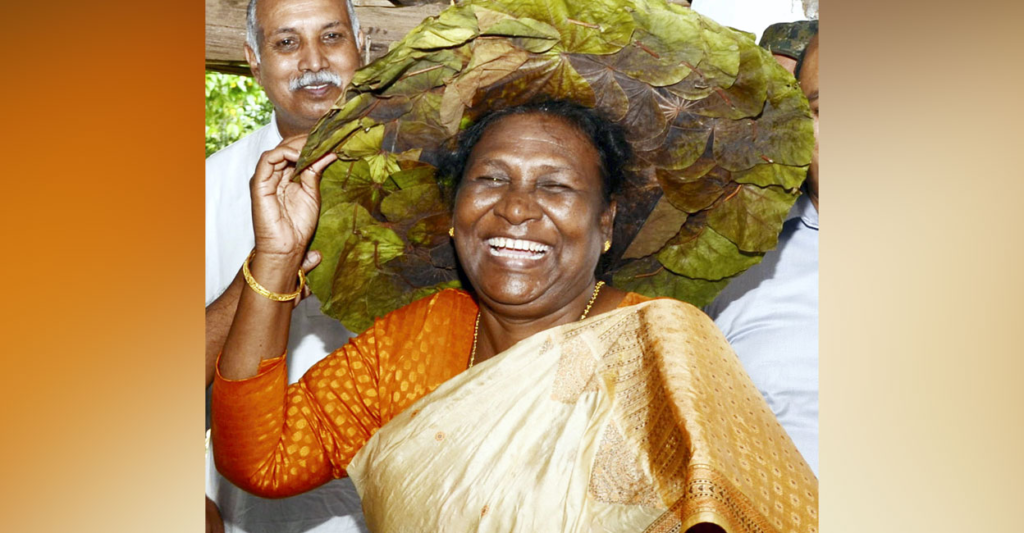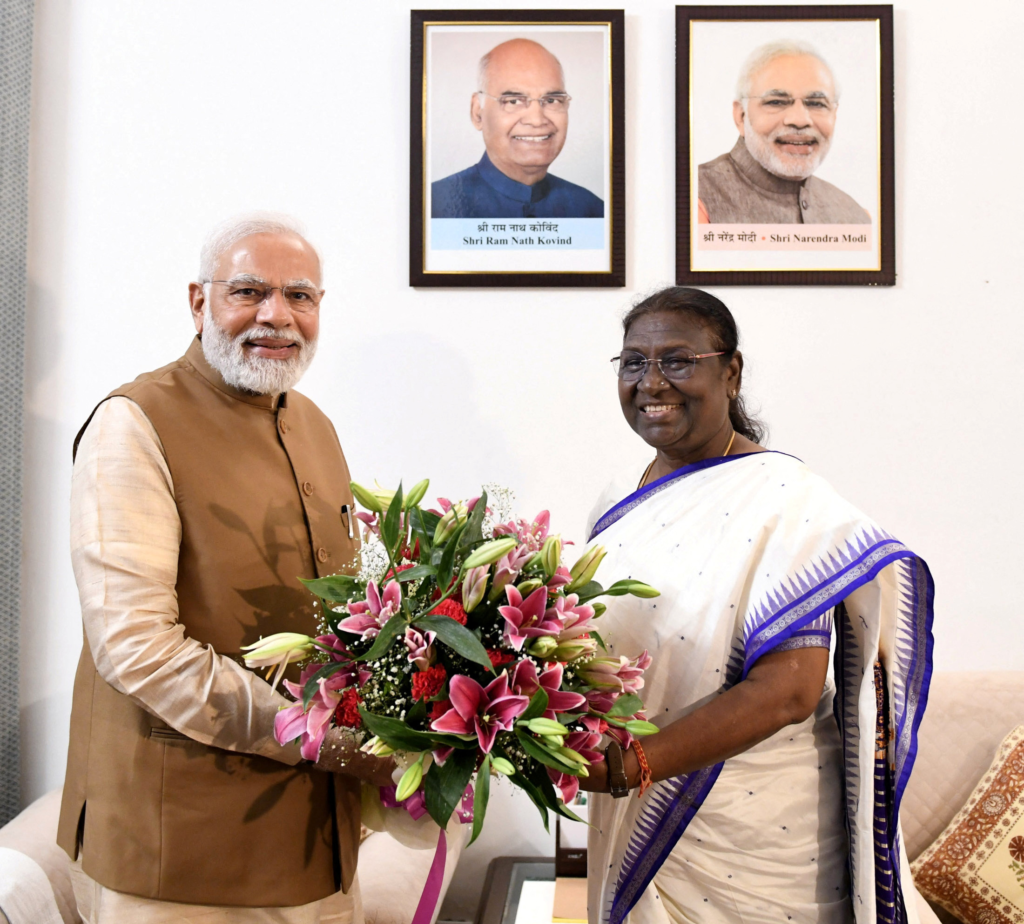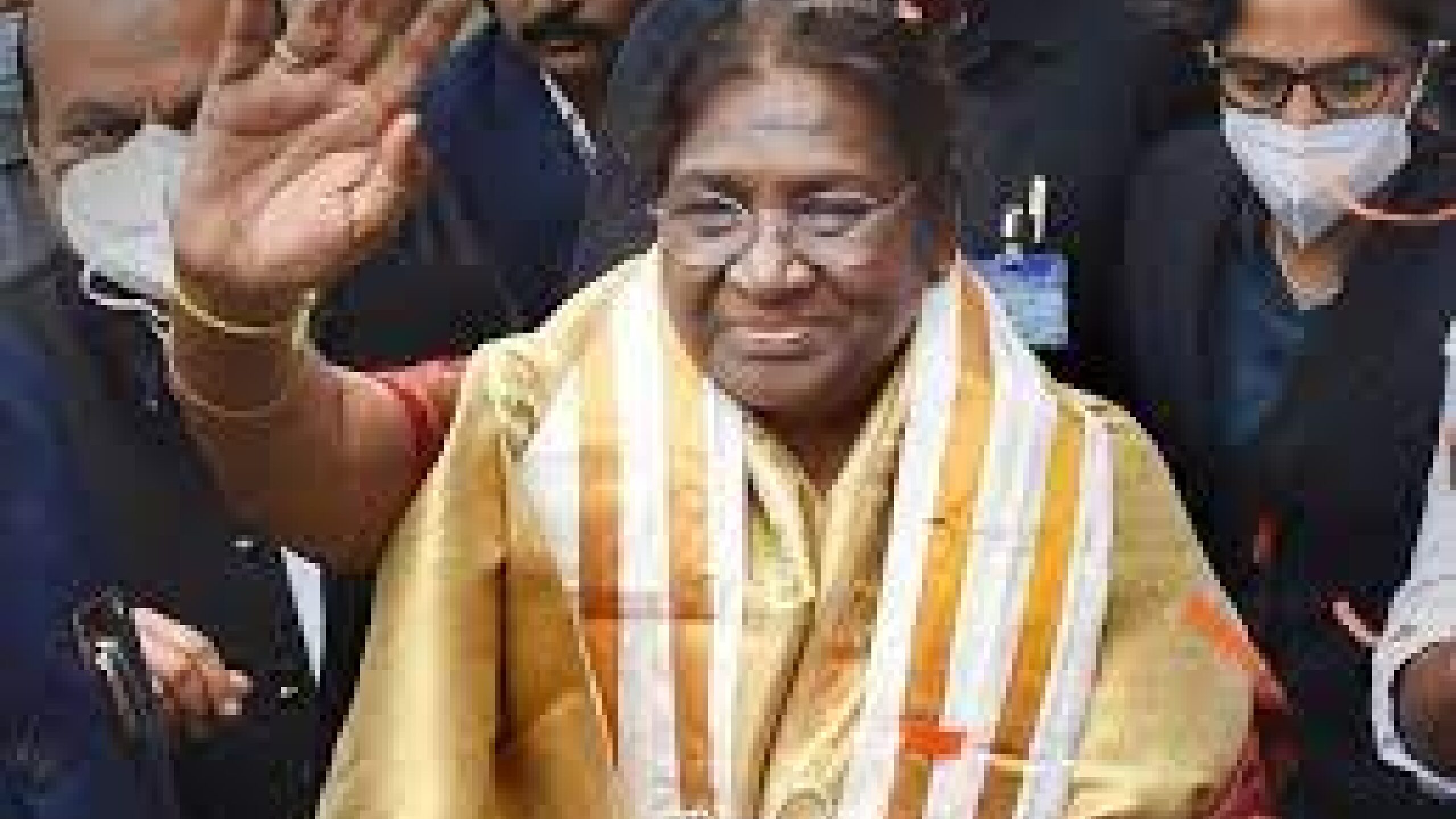Over the last couple of weeks leaders, anchors, reporters, commentators and critics, no one had mentioned Madam President DroupadiMurmu without pointing at “tribal” as if that is her identity and credential. By that what is that they are referring or reminding about? Is it her remoteness from New Delhi? Or, is it about not having access to a school with government prescribed text books? Or, is it about marginalisation of vulnerable groups who are deprived or denied their basic rights and natural justice? To me it appears that most of us continue to be stereotyped and outfashioned about development and even democracy or poverty (economic) and backwardness (physical). What Madam President spoke after swearing in should make us ponder where we are heading in the name of heights of development and depths of democracy. That is what prompted me to share my thoughts in this context.

Would tribal remain a tribal forever?
Would a tribal remain tribal for ever as in the case of caste? The Britishers described them as “tribal” (not as Adivasi) in the decadal Census and that label got stuck for convenience of bureaucrats. (Adivasi implies pride and reminds heritage, tribal, on the other, is often used in a derogatory context). Can we consider their traditions and rituals as irrelevant because they are practised from much longer and before we knew about them? Or, because only a few live there and their number is on the decline? if belonging to a particular social group with strong loyalties and beliefs including in Nature, are tribal, those using social media now or belonging to some political groups, too could be described same way. And if each one lives for oneself unlike those Adivasis who live collaboratively and for togetherness, what should we call them? As early as in 1960 Dhebar Commission had suggested Integrated Tribal Development Plan and Tribal Sub Plans. And, tribal affairs were shifted out of Home Ministry by creating a new Ministry of Tribal Affairs. And, yet, their situation remained as is, if not worse.
Also read: Is education bewildering?

They fought for our independence
Have we forgotten that people living in forests played active role for Independence and development of the country? Alluri Satyanarayana Raju whose 125th birth anniversary celebrationswasinaugurated last fortnight by the Prime Minister, was one of such. Yet their enthusiasm is not welcomed. In fact, more often it is suppressed as if they live by courtesies of distant ones! We always want them to understand what was alien but never serious to understand them any better. What efforts have we made to integrate them into the so called ‘mainstream?’ Have we ever taken them into consideration with the weightage they deserve in public policy making or in implementation? Have we looked at them as people in forests, rather as “forest people”?
Also read: What happened to “little Republics” of India of yesteryear? They need a voice, urgently!
Sustainable living, environment
If beliefs, behaviour, attitude and life style are the way to describe them as Tribals, we could apply same norm for sections elsewere too. Those with no concern to each other, or working together, should they not be distinguished too? If mobbish behaviour is one such attribute of tribal, why do we apply different standard? If sustainable living and environment is a criterion for development who will stand where and with what label? Even if harmonious habitat is a criteria,or, sharing is a better social value, or if futures perspective is givenhigher weightage,who will stand where?
Also read: What happened to “little Republics” of India of yesteryear? They need a voice, urgently!

It is the leaders, anchors, reporters and the like self-interested ones who decide it all as if even false beliefs matter if you can manage and impose. Going through news media these days, particularly the social media, I’m reminded of what I read fifty years ago. That is humans are herd beings chasing conformity to what one is otherwise interested in, unconcern of others. An idea that is never spoken or written dies down. We seem to forget this fact conveniently. An idea can only be remembered when it is allowed and repeated. Only then it can also be believed. This was expected when the idea of tribal research was considered at the very outset of Independence. It was realising their importance and their unique culture and with a hope of integrating them that Tribal Research was taken up 65 years ago. Between 1952 and 1955 Tribal Research and Development Institutes were set up in Bhopal, Ranchi, Cutback and Calcutta and now there are 26 such Institutes. What have they done to sensitise the country about rich heritage and harmonious habitats. Even their folk culture is not known beyond. How many know today that there are so many research institutes exclusively? These institutes on their part should wake up now.
Also read: Do we expect any better Environment?
Equal rights, protection
The Constitution and the law has provided to protect all communities and has mandated equal rights and protection from the State to persons of all identities. We have even provided for special provisions in the Book. And yet we hear frequent instances of harassment, injustice and usurpation of what belong to those living in forests. Azadi Ka Amrit Mahotsav is a good time to ponder about without blinkers! We should at least start using Adivasi (Replace Tribal).
Also read: Biographies could change future of a generation!
(Dr N Bhaskara Rao has been engaged in research based public policy analysis in the country. His recent books on Citizen Activism, Good Governance and Rejuvenating the Republic, etc. tell it all).





Bhaskara rao garu,
An excellent article about calling forest and hill area people as tribals is illuminating over the injustice meted out to them. Adivasis may be an honourable name. We should call them like that.
I am a former Director Audience Research in AIR retd. in 2003.I took over from Mr. Khatri. In Doordarshan, Chandrashekhar used to be there. Both are no more.
Glad to have contact in this way after almost 20yrs. I am settled in Bangalore, my son’s work place, Infosys. Thank you.